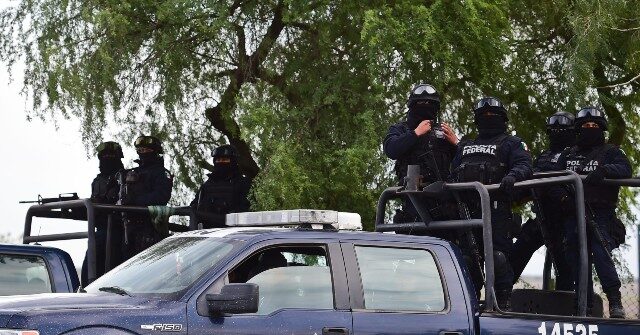In a troubling incident from Tamaulipas, Mexico, a police officer finds himself facing murder charges related to the tragic killing of a 15-year-old teenager, Pedro Israel. The officer, identified as Quintin, allegedly mistook the teen for an armed gunman while he was driving his mother’s SUV to a gas station in Reynosa. Following the shooting, Quintin, along with five other officers, is charged not only with murder but also with unlawfully conducting themselves as law enforcement with intent to cover up their actions. In total, six officers have been arrested in connection with this case, while two others remain at large.
The situation escalated sharply after the officers reportedly shot Pedro Israel, believing he was part of a threat. Instead of owning up to their actions, the officers purportedly planted evidence to make it seem as if the teenager had engaged in a shootout with authorities. This included placing weapons and road spikes within the vehicle to fabricate a narrative that the shooting was justified and that Pedro Israel was part of a violent encounter. The depth of such actions reveals not only a tragic loss of life but also a profound breach of ethical conduct by the police involved.
In the aftermath of the shooting, local officials, including Tamaulipas Public Security Secretary Sergio Hernando Chavez, attempted to affirm the police’s defense claims. He supported the officers publicly, insisting that their actions were in self-defense against an armed group that included the teenager. This initial defense raises questions about the accountability measures in place for law enforcement and whether they are truly serving the community or enacting unjust violence under the guise of maintaining order.
This incident is reminiscent of a horrific event from 2021 when Tamaulipas police officers mistakenly targeted a convoy of human smugglers, resulting in the deaths of 19 individuals, predominantly migrants. Those officers, too, attempted to cover their actions by setting the victims’ bodies and their vehicles ablaze, claiming they had encountered a shootout between rival gangs. The similar patterns of violence, mistaken identity, and fabricated narratives highlight a disturbing trend in the conduct of law enforcement in the region and calls into question the training and processes that are supposed to safeguard the rights of civilians.
The recent arrests mark a significant move towards accountability for police misconduct, but they underscore a wider issue of systemic failures in policing practices, particularly in areas experiencing high levels of violence and cartel influence. The expectation for justice in such cases remains tempered by skepticism, given the previous instance where twelve officers received sentences but prompted little change in the broader culture of police accountability in Tamaulipas.
Amidst these pressing issues, it is essential to recognize the role journalists play in illuminating systemic injustices. Ildefonso Ortiz and Brandon Darby, prominent figures in the media, persistently report on the challenges faced in border regions and the impact of cartel violence on communities. Their work through Breitbart Texas provides critical insights into ongoing problems, promoting awareness and dialogue about the need for reform in police conduct and the importance of safeguarding the lives of innocent civilians in a decidedly tumultuous environment.

